5 Ways Your Home’s Carpeting Can Make You Sick
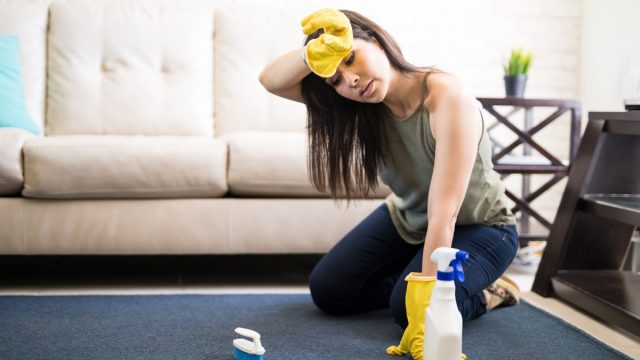
Having carpeting on your floors can help insulate a room, provide a soft landing as you walk, and contribute to a cozy atmosphere. It’s also a cost-effective way to lay down flooring, compared to the alternatives. However, experts say that before you call the contractors, you should consider not only the aesthetic and financial value of a carpet but also the ways this particular type of flooring could impact your health. They warn that carpets can cause a range of serious symptoms, which can affect even those in the best of health. Read on to learn the five ways your home’s carpeting can make you sick, according to doctors.
RELATED: What Happens If You Don’t Vacuum for a Month, According to Experts.
1
They can expose you to thirdhand smoke.

If the carpets in your home were there when you moved in, they may pose a risk by exposing you to thirdhand smoke from the former tenants or owners.
“A recent study found that carpets can absorb and retain harmful chemicals, like those found in tobacco smoke. Even after smoking has stopped, these chemicals like to linger,” explains Phil Green, MD a private general practitioner at Tower Health in the U.K. “When disturbed, they can be released into the surrounding air, posing health risks to those around. Thirdhand smoke exposure has been linked to respiratory issues and other health problems, making these recent findings truly concerning.”
RELATED: Why Does Your House Have Its Own Smell? Experts Explain “Occupant Odor”.
2
They can trap allergens and contaminants.
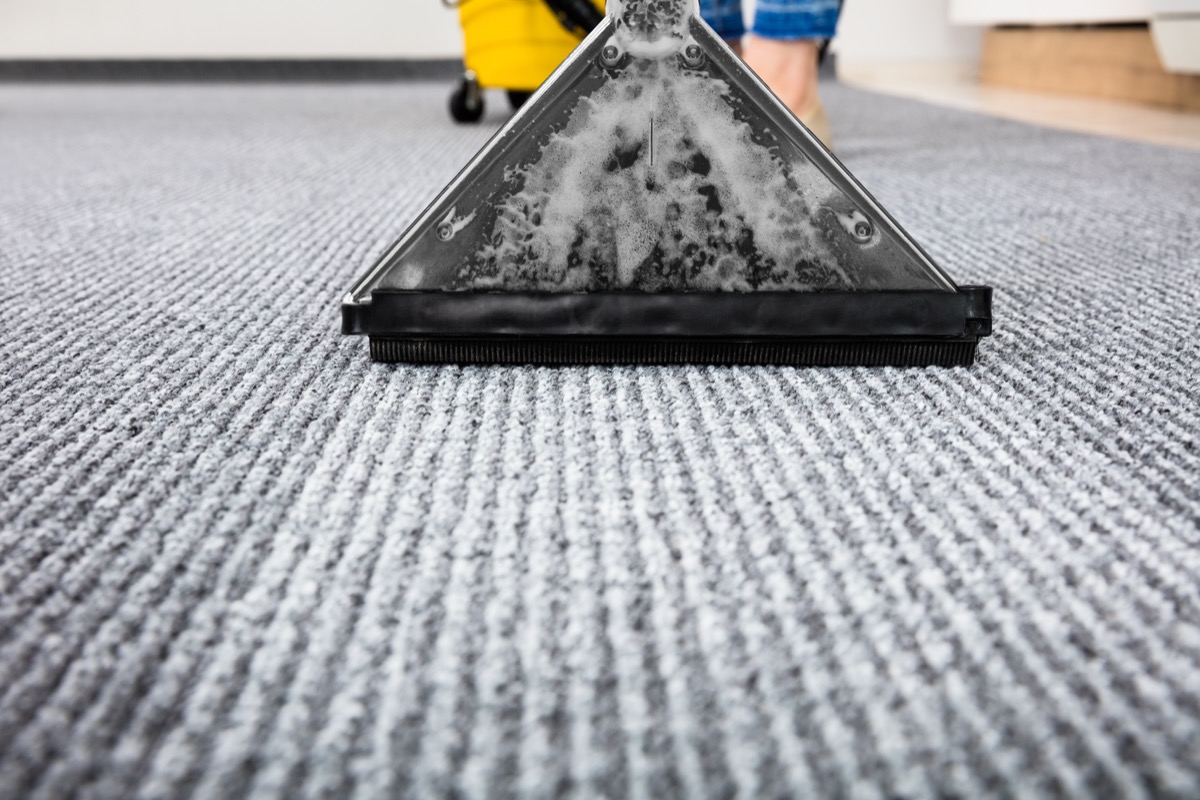
Old or poorly maintained carpets can also trap allergens and contaminants, which can compromise the air quality in your home, says Naheed Ali, MD, PhD, a physician and medical writer.
“Carpets can trap dust, dirt, pet dander, and allergens, creating an environment that can exacerbate respiratory conditions such as asthma and allergies,” he explains. “These particles can become airborne when disturbed, leading to breathing difficulties and discomfort, especially for individuals with sensitivities.”
Ali notes that by vacuuming regularly and having your carpet professionally cleaned periodically, you can help mitigate this issue. “It’s essential to maintain proper cleaning routines to prevent the accumulation of potentially harmful particles in the carpet fibers,” he says.
RELATED: What Happens When You Don’t Wash Your Sheets Every Week, Doctors Say.
3
They can harbor mold.
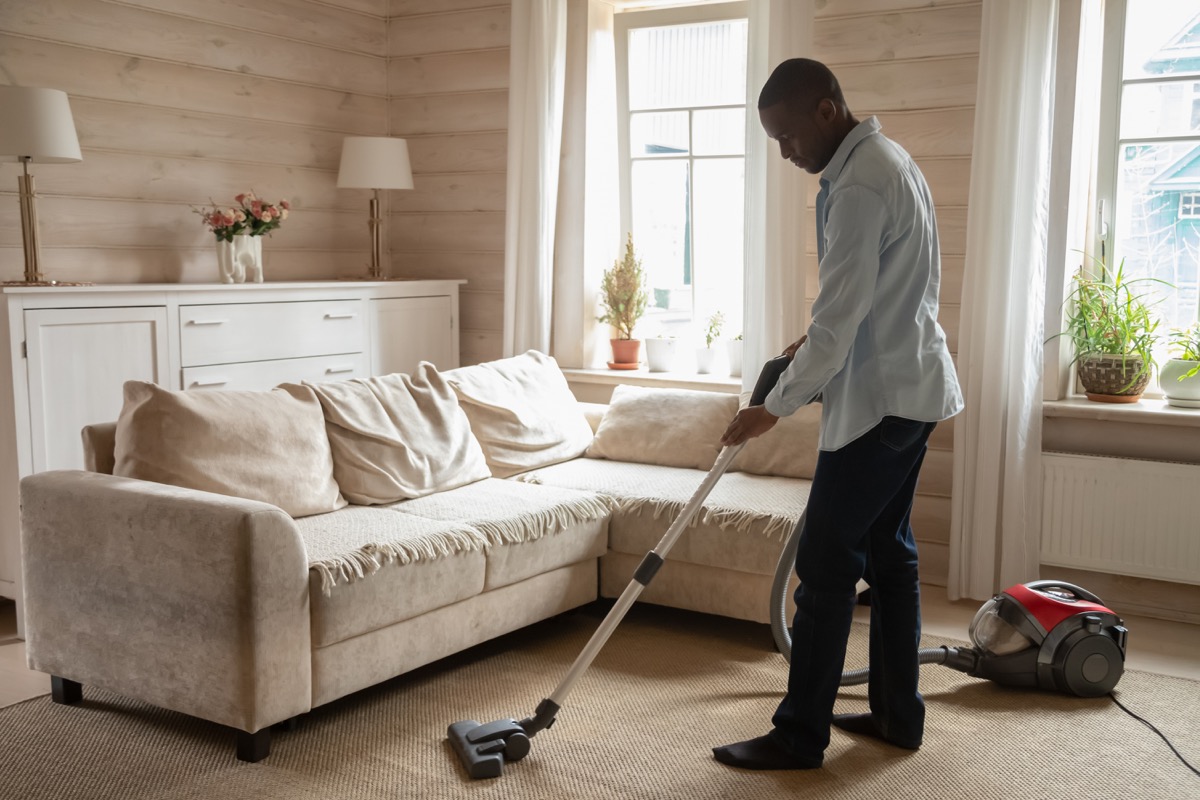
Mold and mildew growth is another health concern associated with carpeting. “If moisture is not effectively managed, it can seep into carpets, providing a breeding ground for mold and mildew. These fungi release spores into the air, which can lead to respiratory issues and allergic reactions when inhaled,” Ali says.
The physician notes that high humidity levels and spills that aren’t promptly cleaned can contribute to this problem.
“To minimize the risk of mold growth, ensure proper ventilation in areas with carpeting, promptly address any moisture issues, and consider using dehumidifiers if necessary,” he suggests.
RELATED: 6 Mistakes You’re Making That Cause Mold to Grow in Your Bathroom, According to Experts.
4
They can contain harmful chemicals.
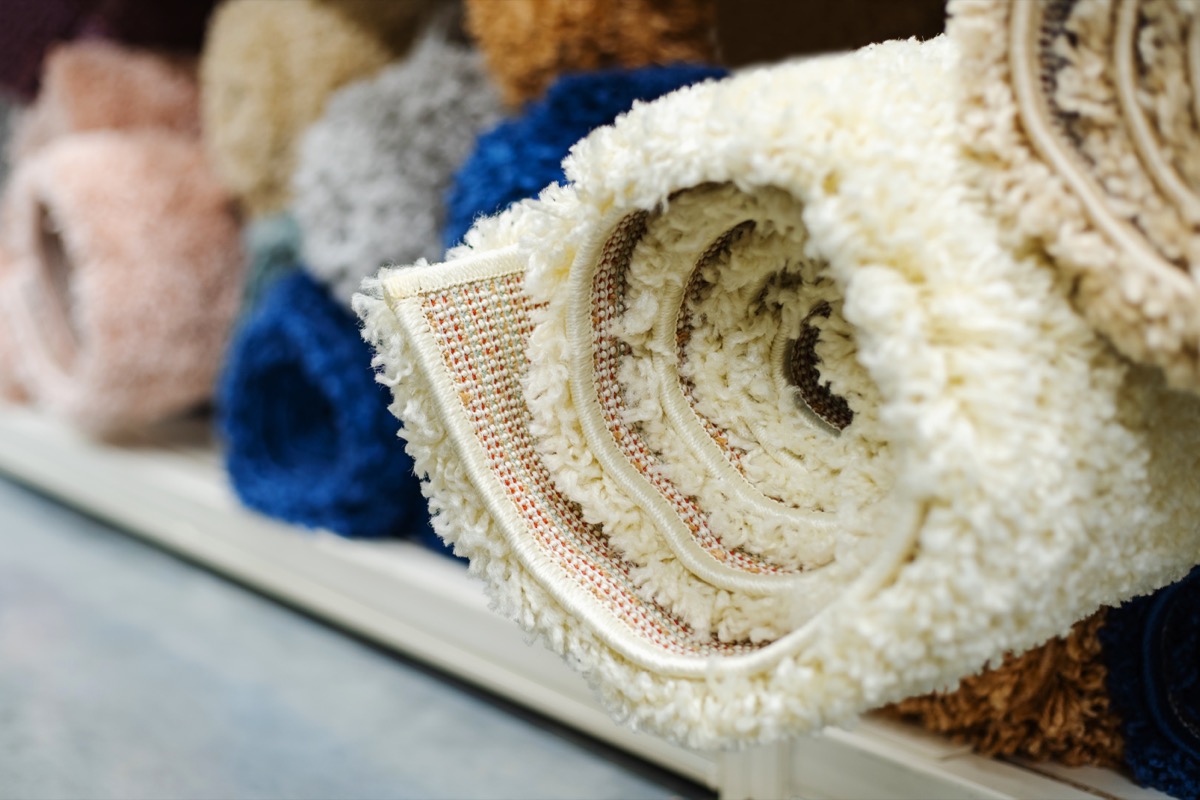
Even a perfectly maintained carpet can cause health issues, due to chemicals used during manufacturing and installation. In particular, experts warn that they can release volatile organic compounds (VOCs) into the air.
“VOCs are gasses emitted by various products, including carpets, adhesives, and finishes, and they can contribute to indoor air pollution,” explains Ali. “Prolonged exposure to high levels of VOCs can lead to a range of health issues, from eye and throat irritation to more severe symptoms like headaches, dizziness, and even organ damage in extreme cases. Opting for carpets that have been certified as low-VOC or seeking out natural and eco-friendly carpeting materials can help mitigate this concern.”
RELATED: Why You Should Really Ask Guests to Take Their Shoes Off, Experts Say.
5
They can spread germs and bacteria.
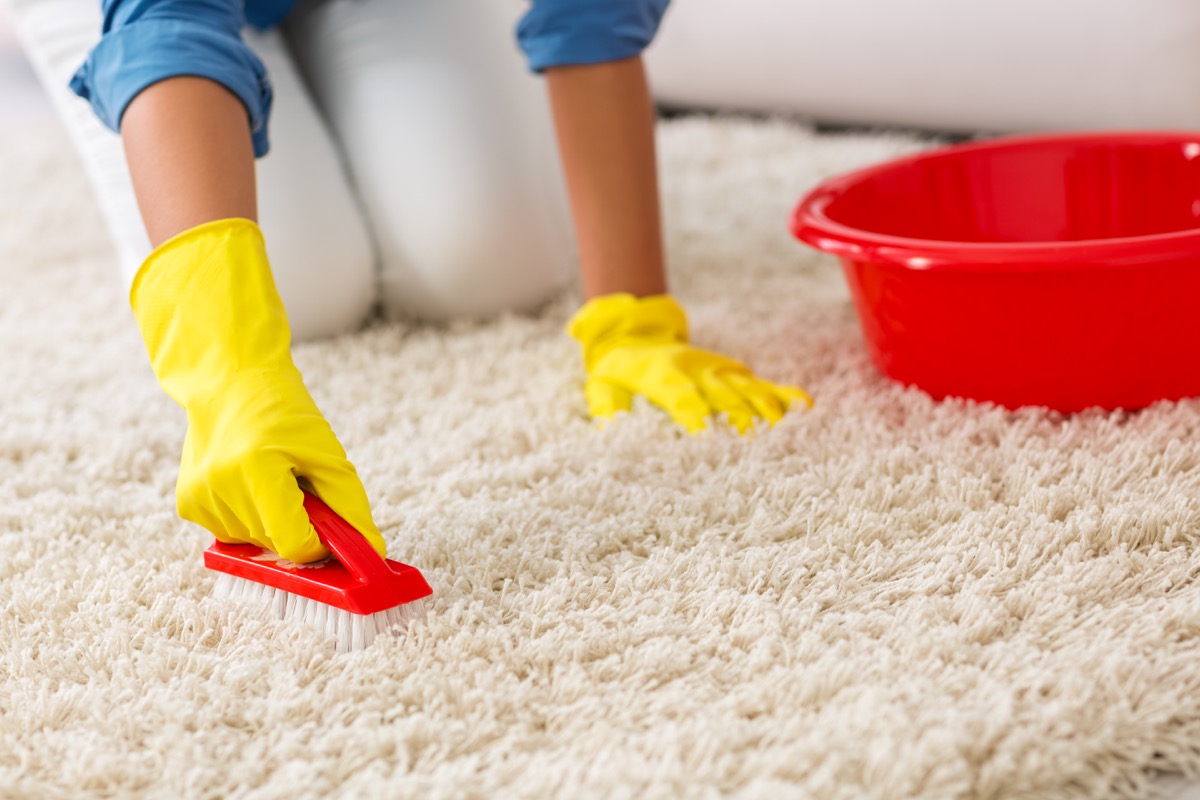
Another way your carpet can make you sick is by trapping and spreading germs and bacteria. These germs can make their way into your home via your shoes, pets, children, and a range of other sources, and are harder to remove from a carpet than they would be from a solid surface.
“The difficulty in carpets is that it’s easy for things to live, grow, and spread,” explains Nabil Salib, MD, a general practitioner at MyDoc Urgent Care. “A carpet can quickly become a cesspool of germs and bacteria and, unfortunately, people don’t clean them nearly enough.”
For more wellness news sent directly to your inbox, sign up for our daily newsletter.
Best Life offers the most up-to-date information from top experts, new research, and health agencies, but our content is not meant to be a substitute for professional guidance. If you have health questions or concerns, always consult your healthcare provider directly.